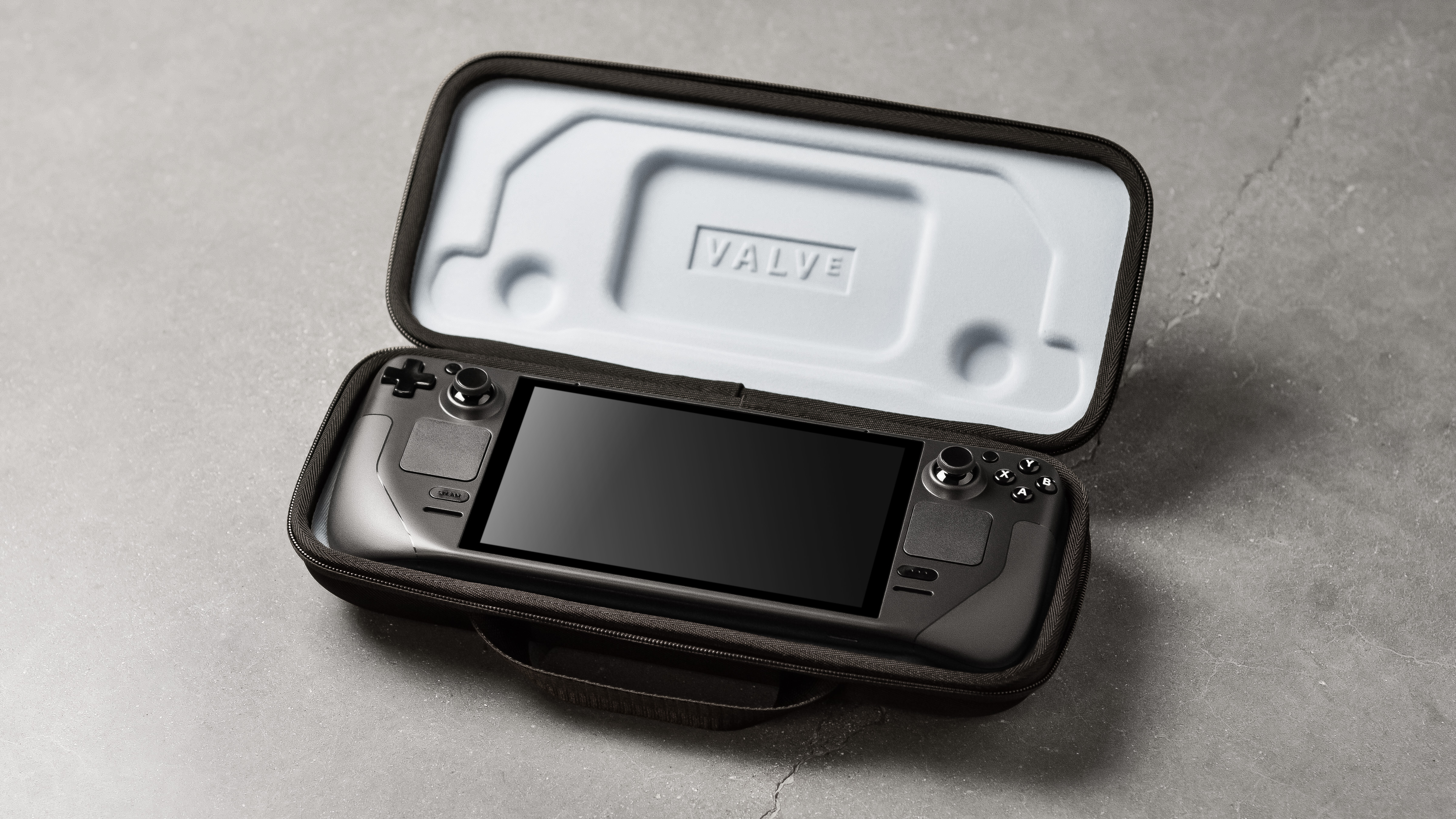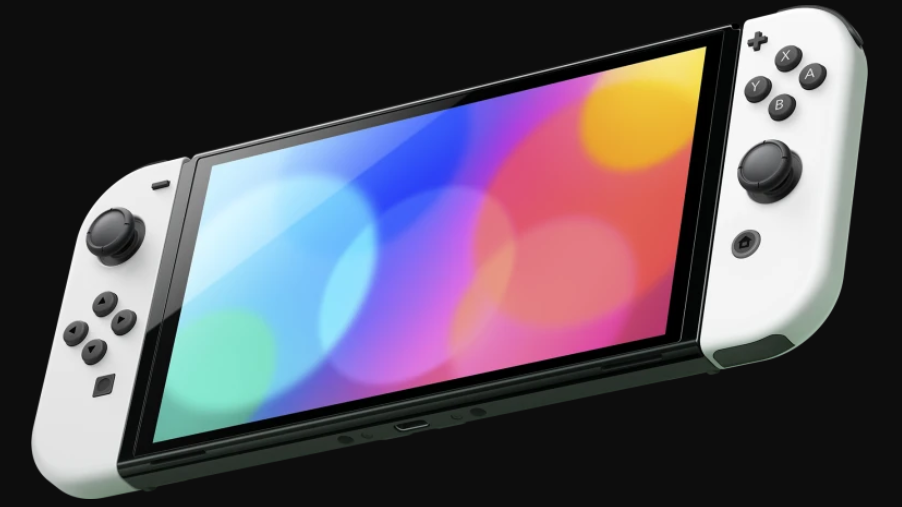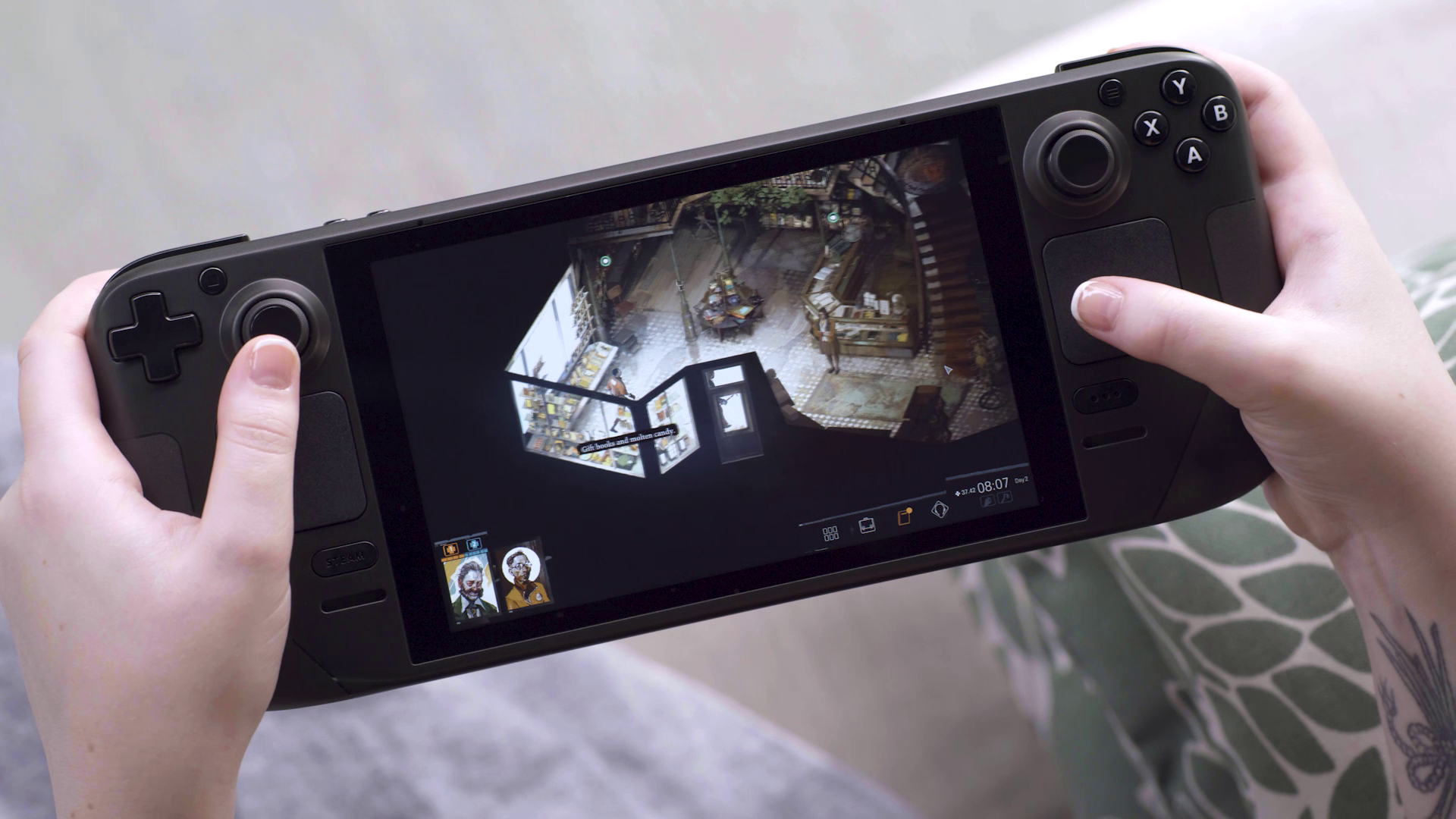Steam Deck is Switch without the magic
Valve won't be the first or last to copy Nintendo without 'getting' it.

I am a very bad PC gamer. Valve is one of the greatest and most impactful companies in the history of PC games and it's delivered the long-rumoured handheld Steam Deck at a lower-than-expected price point, and with all sorts of promises about what you can do with it. And the crowd goes wild!
Except me. When I saw the Steam Deck reveal video, the first reaction was obviously: Wow, they really like their Switches in Seattle. Then a slight sense that I'd seen this all before. That's obviously not literally true, but it was impossible to shake off the sense that Steam Deck is a piece of hardware that fits in the same lineage as Playstation Move and Kinect. Yes, they were controllers, not platforms, but what they all share is that they follow in Nintendo's wake, without ever quite understanding why the Kyoto magicians were going that way in the first place.
Nintendo is grossly underrated as a hardware design company, primarily because it doesn't care about what hardware high-enders care about. The guiding philosophy has always been that of the late Gumpei Yokoi, best-known for the Game Boy, who encapsulated it as "lateral thinking with withered technology." That is, when everyone around you is looking at the bleeding edge of technology, Nintendo is thinking about (broadly speaking) the unexplored potential of older hardware. Trivia: the Wii motion-sensing technology was originally considered for Gamecube, which probably stands as Nintendo's last 'traditional' console.

That's not to say Nintendo always gets it right, but even when it gets things wrong the reasons why are interesting. Wii U was a failure, but the concept behind it was understandable: Nintendo guessed that living rooms were shortly going to become places with multiple screens, and that a console that could switch (thangew) between TV and couch would fit into that ecosystem. In the Wii U's case the idea makes sense, but the hardware was too withered: the rapid improvement of tablets following the iPad made the Wii U gamepad look like a Tonka toy.
So to Switch, and why Switch works. It's easy to say that this hardware was always going to be a success, but Nintendo bet the farm on it: for the first time in its history integrating its portable and home console design and software teams. In the lean home console years Nintendo's portables had kept the ship afloat but, after Wii U and with the rise of mobile gaming, the company correctly intuited that the only way forward was to make Switch the best of both.
Switch is successful because it's not like everything else out there. Playstation and Xbox always have, and continue, to emphasise their hardware's power and vast array of multimedia offerings, while PC is the ultimate gaming platform but also the most expensive and demands a certain amount of attention and tweaking: you have to be somewhat dedicated. Switch sacks all of that off, and instead offers supremely tactile hardware that's good enough to run brilliant games, the inspired 'docking' gimmick, and a masterclass in ease-of-use.
Steam Deck is more powerful than Switch: I had to laugh at Hard Drive's headline, 'Valve announces the Switch Pro'. It is also heavier than a base Switch, larger than a Switch, and has a rather functional bordering-on-ugly design. I've seen plenty of folk comparing the aesthetics to the Game Gear, Sega's colour portable, but honestly I think the Game Gear looked a bit better than this. Either way, this thing is chunky.
The biggest gaming news, reviews and hardware deals
Keep up to date with the most important stories and the best deals, as picked by the PC Gamer team.

I suppose the pitch really is as simple as a handheld PC with the best elements of the Switch design, with some expectation that the platform may even help standardise target specs across Steam (if this thing sells like hotcakes it will become the default min spec for PC games).
Thing is, I wonder whether that really is a niche. Who has this particular gap in their life? If you have a decent PC, why would you want a lower-spec handheld one? If you're looking to get a new PC, why would you plump for this over a desktop? Beyond a GPU shortage, perhaps. I mean, PCs aren't just for gaming. I'm not even sure whether this is targeting PC obsessives with cash to burn, or the mainstream: because with Switch Lite retailing at half the price, the latter seems an optimistic goal.
To me the Move and Kinect energy around the Steam Deck comes because, like those devices, it's kind of in a halfway house. Move copied the Wiimote but did so with improved motion-sensing technology and completely missed the point. At least, unlike Kinect, it worked as advertised.

And Steam Deck is like a Switch without everything that makes Switch great. Every game on Switch is made for Switch, for a start, whereas on Steam Deck you'll be relying on trackpads to control games intended for mouse & keyboard and squinting at tiny text on a too-small screen. It has gyro controls but lacks the 'playability' and functionality of Nintendo's snap-on and -off Joy-Cons, the button layout is godawful (the B button is doing a Salvador Dali off that edge), and it's just too big.
Valve's hardware always seems like there's a great idea there somewhere but they never quite nail it. Steam Deck could be the exception, or the next Steam Box.
It has advantages, sure. Switch is a closed garden with Nintendo pricing, whereas Steam Deck will play almost anything and you'll already presumably have a massive Steam library of your own ready to go. Games will be dirt cheap on Steam Deck and you can't argue with that: it's just whether you'd ever play them on the thing.
Steam Deck feels like it copies Switch without quite getting it right, and is something of a compromised vision as a result. As far as it and Switch being competitors, I doubt it will take anything away from Nintendo's market share, because it completely lacks that magic of the form factor, the bespoke software, and the wonder-gimmicks. A few iterations down the line, Steam Deck might be something. But Valve won't be the first to find out that copying Nintendo isn't as easy as it looks.

Rich is a games journalist with 15 years' experience, beginning his career on Edge magazine before working for a wide range of outlets, including Ars Technica, Eurogamer, GamesRadar+, Gamespot, the Guardian, IGN, the New Statesman, Polygon, and Vice. He was the editor of Kotaku UK, the UK arm of Kotaku, for three years before joining PC Gamer. He is the author of a Brief History of Video Games, a full history of the medium, which the Midwest Book Review described as "[a] must-read for serious minded game historians and curious video game connoisseurs alike."

